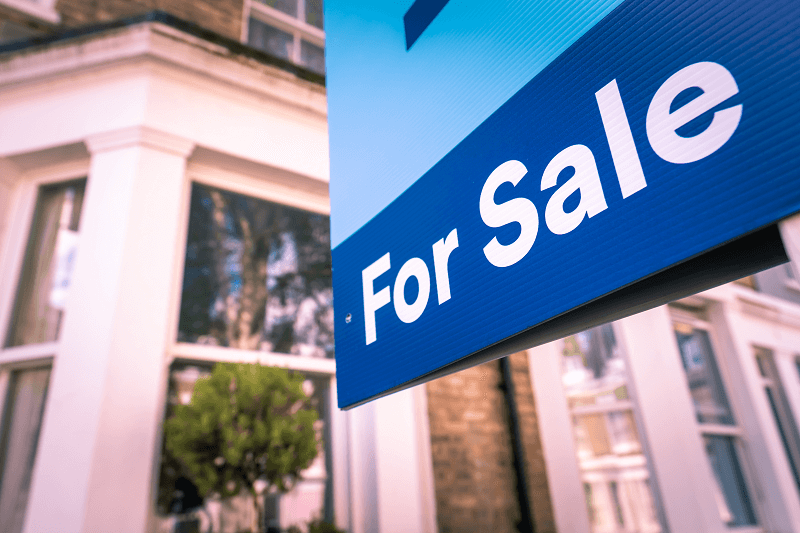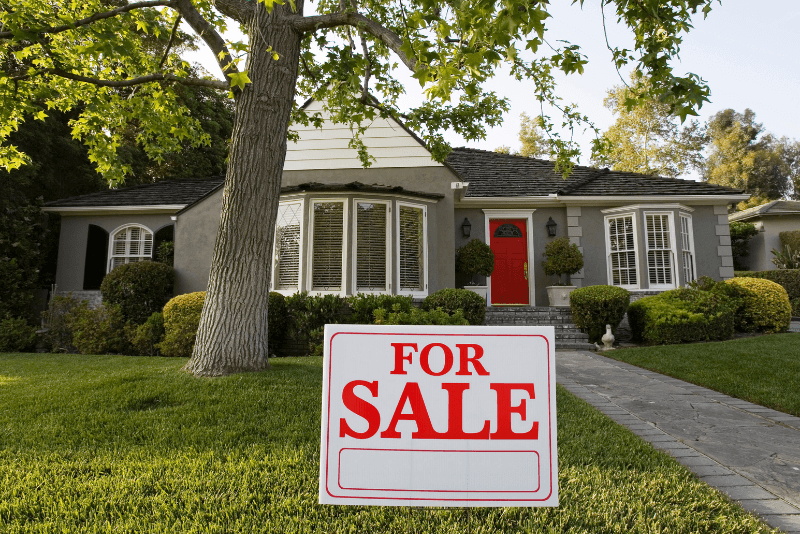
Are you struggling with the decision to sell your house below market value? You may have difficulty selling your house at market value or want to sell it to a family member or friend. There are many reasons a home seller might want to sell their house for less than it’s worth.
Of course, selling a house can be a hassle with many factors involved. Do you have to sell through an agent? Do you still have to pay closing costs? Do you want a cash offer? What are the risks involved? How do you know if it is the right decision for you?
In this article, we’ll review your questions and concerns about the selling process when deciding to sell your house below market value and get you on the path to making the right decision.
Let’s start with the basics.
Selling a House Under Market Value: What You Need to Know
Selling a house under market value means selling it for a purchase price less than its perceived market value based on recently sold, comparative properties.
As a homeowner, you can price your property however you want. However, you need to ensure you’re not selling your house for less than you still owe on your mortgage. This is called a “short sale” and requires lender permission.
If you are having a difficult time selling your home at fair market value, wish to sell to a family member or friend, are experiencing financial hardship, are dealing with an inherited property, an investment property you no longer want, or want to sell a house fast in Alamo Heights, selling below market value might be the right way for you to sell your house as quickly as possible.
When selling your house, you have the option of selling through a real estate agent or selling a house by the owner. A real estate agent will take a commission. However, they will probably be able to sell it faster than you could. If you sell to someone you know, you may want to “cut out the middleman.” Research all of the processes and costs before you go down this road.
If you want to sell a house that isn’t moving on the market, it may be worthwhile to appraise it. If a comparative market analysis has not been done correctly, it’s entirely possible your selling price was too high, to begin with.
Types of Home Values
There are a few different ways to determine home value. Knowing their goals, how they are calculated, and their limitations is essential.
It’s also important to note that the real estate housing market is ever-changing. Each method of determining a home’s value is often based on trends, what’s sellable now, and does not reflect a property’s objective value.
Market Value
A home’s market value is an estimate of its worth based on the current market and what similar or “comparative” properties have sold for.
This valuation is determined through a Competitive Market Analysis that gathers and considers the number of bedrooms and bathrooms in a house, square footage, recent home sales data, and comps.
This value is what sellers often use to determine their listing price.
Zillow Home Value or Zestimate
Zillow’s Zestimate, and other tools like it, are generated by algorithms based on data from user-submitted information, MLS listings, comps, and public records.
These values can be fun and may give you a ballpark idea of a property’s value, but they can’t keep up with things like home renovations and other factors that could quickly impact a property’s value.
Never use them to determine how much you should ask for your house.
Appraised Value
The appraised value of a home is based on an evaluation by a professional appraiser who looks at the property, its amenities, features, and the current market.
Assessed Value
Assessed values are determined by an evaluation by local government assessors.
Appraised Value vs. Assessed Value
So what’s the real difference between a property’s appraised value and its assessed value? Here’s what you need to know.
Purpose of Appraised Value
The appraised value of a property determined by a licensed real estate professional is used to estimate a property’s value. The appraised value of the home is used by a lender when a buyer applies for a mortgage, so the lender knows they are lending an appropriate amount.
Purpose of Assessed Value
On the other hand, the assessed value determined by a government assessor is used solely to calculate property taxes.
A house’s assessed value can be higher or lower than market value and is not an appropriate value when determining a purchase price.
Selling a House Below Home Value
Home sellers have several choices when it comes to selling a house below home value. Here are three and how to use them in selling a house from start to finish.

On the Open Market Through a Real Estate Agent
You can work with a real estate agent to decide on a price for your home. They will put it on a multiple listing service and handle the ins and outs of selling.
An agent will sell your home faster than you could on your own. They can handle coordinating the paperwork and making sure everything is done correctly.
You will have to pay them a commission. However, this can be extra motivating either for your agent not to sell too low or to get the house sold and closed quickly.
Selling to a Friend or Family Member
If you want to keep a house in the family or help out a loved one, this is a great option, but there are some additional issues to be aware of.
Ensure you are not making this decision for emotional reasons or because you feel pressured to sell your house to someone below value.
You also want to go through the steps you’d go through with any buyer, including signing a contract and hiring a real estate attorney. It’s also a good idea to hire an inspector and appraiser so you know what you’re selling, and the buyer knows what they’re buying.
It’s also essential here to be aware of tax laws. If you sell your home for more than 25% below market value, it will register as a gift and be subject to the gift tax. Make sure you are aware of gift tax law and exemptions that apply.
Selling to a Cash Buyer
Another option is to sell your house below market value to a cash buyer, such as cash home buyers in Texas or your state.
This is the fastest, easiest way to sell a house below market value, though you might be offered less than you would through a realtor, so you should make sure you know what you want for the house and what you absolutely must have.
You can contact a cash buyer like we buy houses in San Antonio through their website or phone number and schedule an in-person visit to your property. After evaluating the house, they will come up with a price and make a cash offer.
If you accept, you sign the contract, and the buyer takes care of the rest.
Do you Still Have Closing Costs on a Home Under Value?
You are still responsible for closing costs when you sell your home under value in an open market. These costs include title changes, attorney fees, capital gains taxes, property transfer taxes, and escrow. These costs typically range between 8% to 10% of the sales price, running several thousands of dollars.
However, if you sell your house below market value to a cash buyer, you won’t be responsible for these closing costs or other financial burdens such as repairs or agent fees.
Pros and Cons of Selling a House Below Market Value
There are many pros and cons of selling a house below market value, and it’s up to you to determine what is most important to you.
Pros
The pros of selling a house below fair market value include the following:
- Selling quickly – If you need the money immediately or want to get the house off your hands as soon as possible, this is usually the fastest way to streamline the selling process.
- Finally, get a home sold- If you’ve been struggling with selling a home that won’t move at a fair price, even if you don’t need to sell it as quickly as possible, this could help it get sold.
- Helping out family or friends: By offering a house below market value for comps, you can help a friend or family member afford a house they might not otherwise be able to.
- Avoiding costs, fees, and repairs – If you sell to a cash buyer for a cash offer, you can sell your property “as-is” without worrying about paying for a home inspection, repairs, closing costs, an open house, or realtor fees.
Cons
The cons of selling a house below market value include the following:
- Less money – It might seem to go without saying, but selling your home below market value means you are getting less than it is worth and potentially less than you could receive.
- Commission fees – If you sell through a real estate agent, they take a commission, even if your property is sold below market value.
- Closing cost – If you sell on the open market, you are still responsible for all closing costs.
- Taxes – While taxes can be part of closing costs, the gift tax is an issue when selling a house below value to a friend or family member.
Conclusion
If you’re motivated to sell your house and have been asking yourself, “Can I sell my house below market value?” The answer is yes, you can!
It is helpful to know as much as you can before you sell your property for less than it’s worth. You want to ensure you’re doing the best for yourself and your situation.
But the good news is that the information is at your fingertips, and realtor or no realtor, you have the power to decide what’s best for you and the sale of your home.
